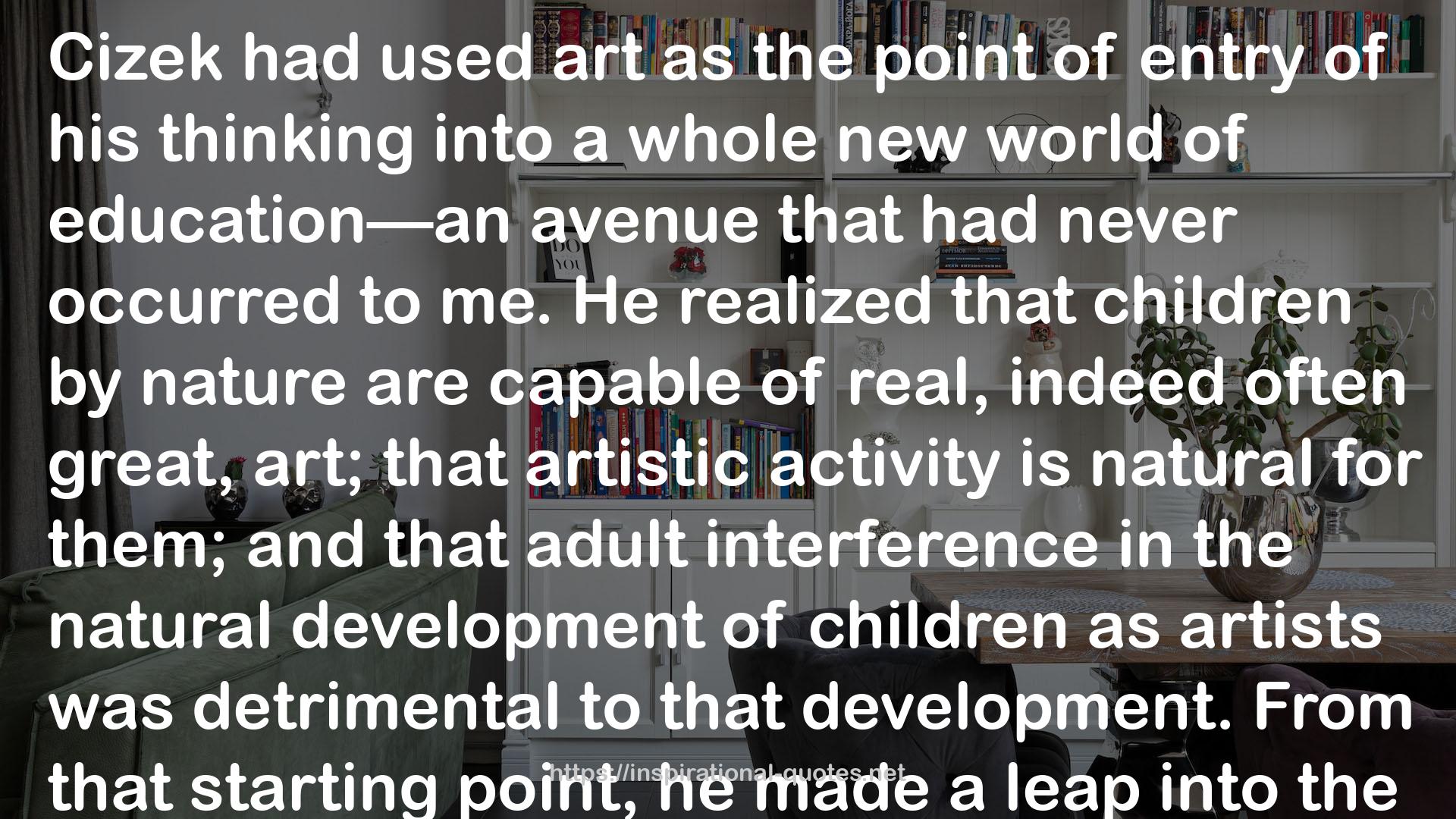" Cizek had used art as the point of entry of his thinking into a whole new world of education—an avenue that had never occurred to me. He realized that children by nature are capable of real, indeed often great, art; that artistic activity is natural for them; and that adult interference in the natural development of children as artists was detrimental to that development. From that starting point, he made a leap into the entire realm of education and child development, concluding that the natural, unhindered growth of children enables them to reach their full potential as human beings, and that adult interference in general is more of a liability than an asset in this process of growth. That leap, from art to all domains of maturation, was an intuitive one for Cizek and his followers. It was not until I read the article referred to in the opening paragraph of this section that I not only gained an understanding of the real basis for Cizek’s intuitive leap, but I also achieved a new and enriching perspective on the nature of education, one that I had hitherto hardly noticed. The key is the observation that certain activities are universal, transcultural, and therefore related to the very essence of being a human. Even more significant and telling—and here once again Cizek hit upon the truth, albeit not consciously—is the fact that these same activities are engaged in by children from the earliest age, and therefore are not, indeed cannot be, the products of sociocultural influences. This places these activities in the realm of biological evolution rather than the realm of cultural history.50 And because these three activities—making music, decorating things, and talking—are the outcome of hundreds of millions of years of evolution, they must represent in and of themselves an important aspect of the exalted place humans occupy in the natural world. In other words, these activities not only represent the outcome of evolution, but they also represent important features that account for the specific place that the Homo sapiens species occupies in the natural order. To allow children—and indeed adults—to engage in these three activities to their heart’s desire is to allow them to realize their fullest potential as human beings. External interference in their exercise, although perhaps sometimes justifiable for social reasons (man is, after all, a social animal too, another aspect of evolution), always involves some diminishing of their ability to become what they by nature are inclined to be. Once this is realized, it is almost impossible to comprehend the enthusiasm with which educators and child development specialists advocate systems for coercing children, against their clear inclination and will, to curtail these activities in favor of an externally imposed adult agenda. Although there might have been some economic justification for such curtailment in the industrial age, there is no longer the slightest pretext of an advantage gained through the suppression of the natural, evolved behavior of children. In "
― Russell L. Ackoff , Turning Learning Right Side Up: Putting Education Back on Track
